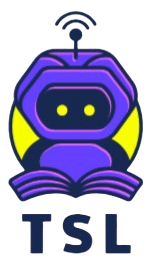
Machine Learning: Principles and Practice
Machine Learning is a transformative branch of artificial intelligence (AI) that empowers computers to learn from data, identify patterns, and make decisions with minimal human intervention. Unlike traditional programming, where explicit instructions are coded, machine learning systems use algorithms to learn from data and improve their performance over time. This capability enables a wide array of applications, from personalized recommendations and autonomous vehicles to predictive analytics and natural language processing. As the volume of data continues to grow exponentially, machine learning is becoming an essential tool for solving complex problems across industries, driving innovation, and reshaping the future of technology.
Prerequisites
- Basic understanding of programming (Python preferred)
- Knowledge of linear algebra, calculus, and probability/statistics
- Prior experience with data analysis or data science is recommended
Course Description
This course provides a comprehensive introduction to Machine Learning (ML). It covers fundamental concepts, algorithms, and practical applications. The course emphasizes both the theoretical foundations and practical implementation of ML techniques, with hands-on experience using Python and popular ML libraries like Scikit-learn, TensorFlow, and PyTorch.
Intended Learning Outcomes (ILOs)
By the end of this course, students will be able to:
- Understand and explain core concepts and terminology in machine learning.
- Identify and select appropriate ML algorithms for various types of problems.
- Implement machine learning algorithms from scratch as well as using popular libraries.
- Evaluate the performance of ML models and fine-tune them for optimal results.
- Apply ML techniques to real-world problems and datasets.
- Understand and mitigate issues such as overfitting, underfitting, and bias in ML models.
- Explore advanced topics such as deep learning, reinforcement learning, and unsupervised learning.
Weekly Breakdown
Week 1: Introduction to Machine Learning
- Topics
- What is Machine Learning?
- Types of Machine Learning: Supervised, Unsupervised, Reinforcement
- ML workflow: Data collection, Preprocessing, Model Training, Evaluation
- Overview of popular ML tools and libraries
- Intended Learning Outcomes
- Understand the basic concept and importance of ML.
- Differentiate between types of machine learning.
- Familiarize with the ML project lifecycle.
Week 2: Data Preprocessing and Feature Engineering
- Topics
- Data cleaning, handling missing data
- Feature scaling, encoding categorical data
- Feature selection and dimensionality reduction (PCA)
- Intended Learning Outcomes
- Preprocess data for machine learning models.
- Perform feature engineering to improve model performance.
- Apply dimensionality reduction techniques.
Week 3: Supervised Learning – Regression
- Topics
- Linear Regression
- Polynomial Regression
- Ridge, Lasso, and ElasticNet Regularization
- Model evaluation metrics: MAE, MSE, RMSE, R²
- Intended Learning Outcomes
- Implement linear and polynomial regression models.
- Apply regularization techniques to prevent overfitting.
- Evaluate regression models using appropriate metrics.
Week 4: Supervised Learning – Classification
- Topics
- Logistic Regression
- Decision Trees and Random Forests
- Support Vector Machines (SVM)
- Model evaluation metrics: Accuracy, Precision, Recall, F1-score, ROC-AUC
- Intended Learning Outcomes
- Implement classification algorithms.
- Evaluate classification models using various metrics.
- Understand and apply decision trees and ensemble methods.
Week 5: Model Evaluation and Selection
- Topics
- Cross-validation
- Hyperparameter tuning (Grid Search, Random Search)
- Bias-Variance Tradeoff
- Intended Learning Outcomes
- Implement cross-validation techniques.
- Perform hyperparameter tuning.
- Understand the tradeoff between bias and variance.
Week 6: Unsupervised Learning – Clustering
- Topics
- K-Means Clustering
- Hierarchical Clustering
- DBSCAN
- Evaluating clustering results (Silhouette Score, Davies-Bouldin Index)
- Intended Learning Outcomes
- Implement clustering algorithms.
- Evaluate the performance of clustering models.
- Understand the application of clustering in real-world scenarios.
Week 7: Unsupervised Learning – Dimensionality Reduction
- Topics
- Principal Component Analysis (PCA)
- t-SNE
- UMAP
- Applications of dimensionality reduction in visualization and preprocessing
- Intended Learning Outcomes
- Apply dimensionality reduction techniques to high-dimensional data.
- Visualize data in lower dimensions.
- Understand when and how to use dimensionality reduction.
Week 8: Neural Networks and Deep Learning
- Topics
- Introduction to Neural Networks
- Feedforward Neural Networks (FNN)
- Backpropagation and Gradient Descent
- Introduction to Deep Learning (DNNs, CNNs, RNNs)
- Intended Learning Outcomes
- Build simple neural networks from scratch.
- Understand the working of deep learning architectures.
- Implement basic deep learning models using TensorFlow/PyTorch.
Week 9: Advanced Topics in Deep Learning
- Topics
- Convolutional Neural Networks (CNNs)
- Recurrent Neural Networks (RNNs) and LSTMs
- Generative Adversarial Networks (GANs)
- Transfer Learning
- Intended Learning Outcomes
- Implement advanced deep learning models.
- Apply CNNs for image recognition tasks.
- Use transfer learning for model enhancement.
Week 10: Reinforcement Learning
- Topics
- Introduction to Reinforcement Learning
- Q-Learning and Deep Q-Networks (DQNs)
- Policy Gradients
- Applications of Reinforcement Learning
- Intended Learning Outcomes
- Understand the basic concepts of reinforcement learning.
- Implement simple reinforcement learning algorithms.
- Explore applications of reinforcement learning in gaming, robotics, etc.
Week 11: Special Topics and Case Studies
- Topics
- Ethical considerations in AI/ML
- Model Interpretability (LIME, SHAP)
- Case studies: ML applications in healthcare, finance, etc.
- Intended Learning Outcomes
- Discuss ethical issues related to ML.
- Understand and apply model interpretability techniques.
- Analyze real-world case studies.
Week 12: Final Project and Review
- Topics
- Final project presentations
- Review of key concepts
- Q&A session
- Intended Learning Outcomes
- Apply all learned concepts to a comprehensive project.
- Demonstrate understanding of ML techniques through project work.
- Review and reinforce key course topics.
Resources
Textbook: “Pattern Recognition and Machine Learning” by Christopher Bishop
Supplementary Material: Online tutorials, research papers, and documentation of ML libraries.
This syllabus provides a balanced approach between theory and practice, ensuring that students gain both the knowledge and the skills needed to succeed in the field of machine learning.

